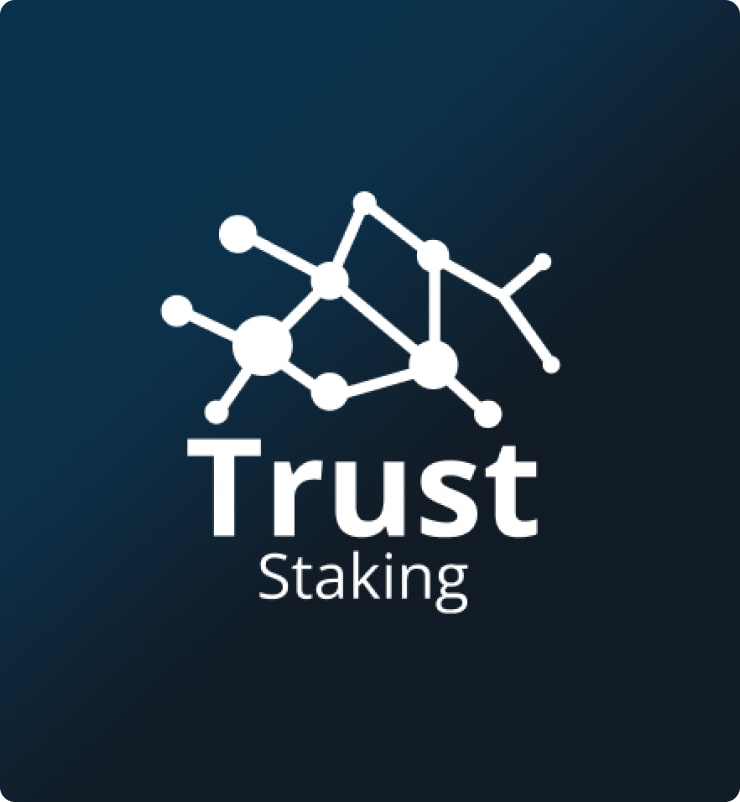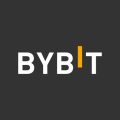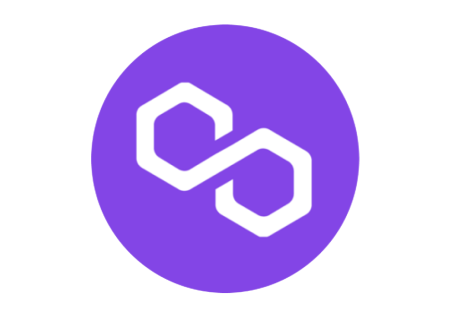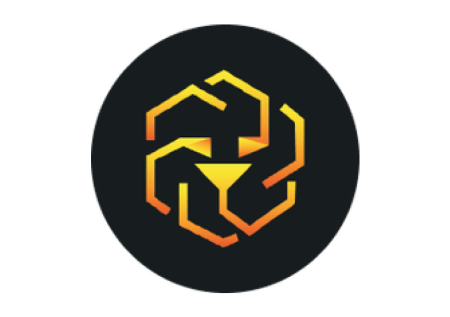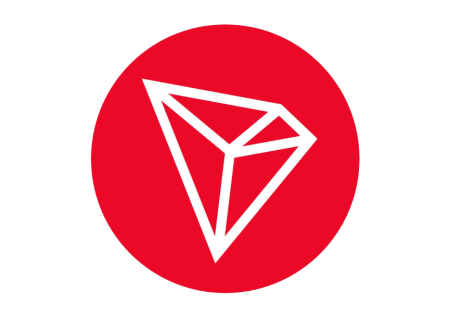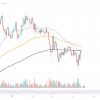What is MultiversX?
MultiversX (formerly Elrond) is a cutting-edge blockchain protocol designed to revolutionize transaction speeds through sharding technology. This project positions itself as an integral part of the emerging internet ecosystem, encompassing fintech, decentralized finance, and the Internet of Things. Notably, its smart contract execution platform boasts an impressive capability of processing 15,000 transactions per second, achieving a mere six-second latency, and maintaining a transaction cost as low as $0.001.
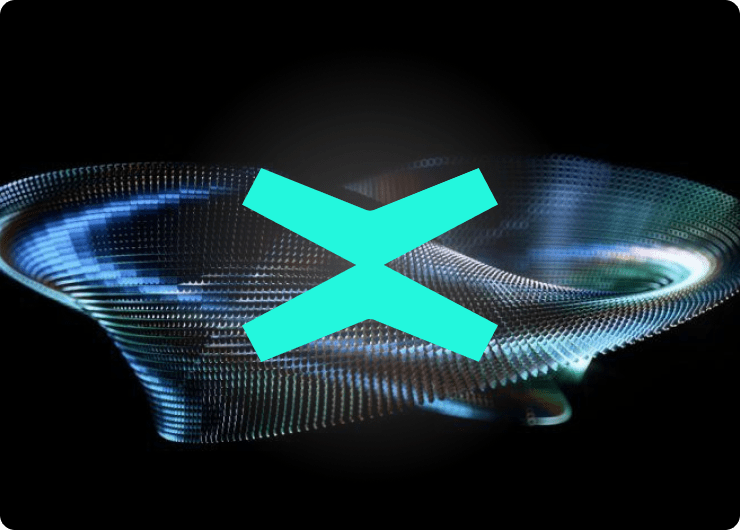
Table of Contents
Incentivizing community engagement and active participation, MultiversX rewards users with EGLD tokens. EGLD, short for Electronic Gold, represents the native token of the Elrond network. It functions as a reliable store of value currency used to cover network usage fees. Additionally, EGLD serves as a means of exchange between platform users and validators, with users utilizing EGLD to pay transaction fees while validators offer essential network services.
EGLD empowers developers to deploy a wide range of smart contracts, protocols, and decentralized applications (dApps) on the platform, granting participants the ability to execute various network actions. Through mechanisms such as staking, validation rewards, and transaction fees, EGLD plays a pivotal role in managing the Elrond network. Moreover, it possesses governance functionality, allowing EGLD token holders to actively participate in network decision-making through voting.
MultiversX first made its debut in August 2019, and its mainnet officially went live in July 2020.
Founders
Beniamin Mincu
Beniamin Mincu is a tech entrepreneur deeply immersed in blockchain technology and artificial intelligence. He co-founded MultiversX, a decentralized smart contract platform (formerly known as Elrond), where he currently serves as the CEO.
Education: Beniamin Mincu earned his Bachelor’s degree in Economics and Management from the Faculty of Economic Sciences at the Romanian – German University of Sibiu between 2008 and 2011.
Career Highlights:

- From May 2014 to October 2015, Beniamin Mincu held multiple roles at the NEM.io Foundation, a pioneer in Smart Asset blockchain technology.
- In September 2016, he co-founded Metachain Capital, an investment fund focused on supporting innovative blockchain technologies. Notable investments include Polkadot, Zilliqa, Binance, Brave, and Tezos.
- Since September 2017, Beniamin Mincu has been leading MultiversX as its Founder & CEO, overseeing the development of a secure, scalable, and decentralized blockchain infrastructure with adaptive state sharding and secure proof of stake. This platform aims to provide cost-effective smart contract solutions and interoperability.
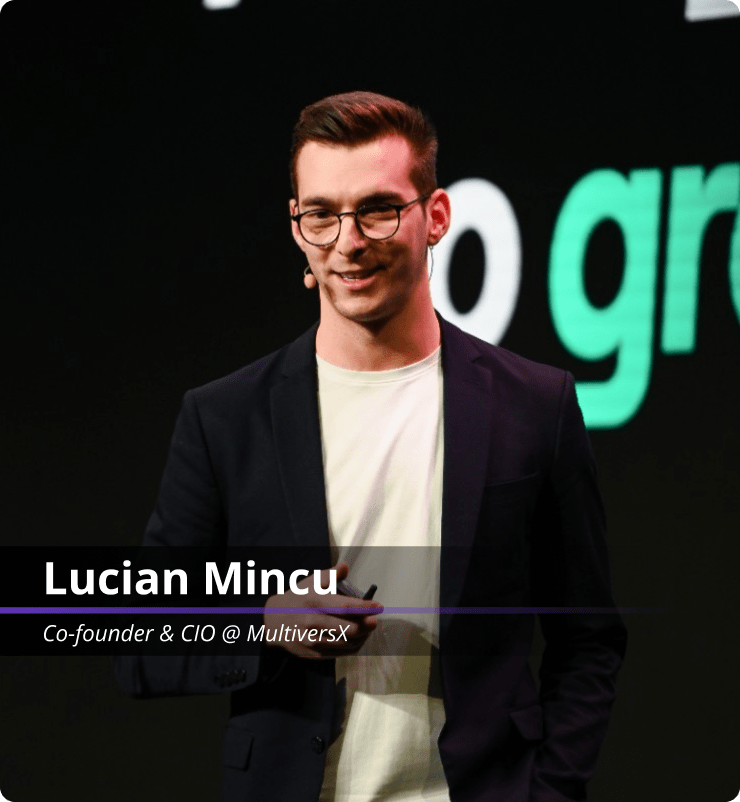
Lucian Mincu
Lucian is a driven infrastructure engineer with a diverse background, ranging from creating comprehensive startup solutions to crafting intricate infrastructure and network architectures for over 20 prominent German educational institutions and other entities throughout the German State. His expertise encompasses Networking, Firewall management, Server deployment, and highly automated rollouts. Lucian has a strong affinity for cutting-edge technology and ventured into the blockchain realm in 2016. In this space, he co-founded Metachain Capital and ICO Market Data. His primary dedication revolves around the Elrond Network, where he plays a pivotal role in constructing the first blockchain architecture engineered for scalability through adaptive state sharding and secure proof of stake mechanisms
MultiversX: Revolutionizing Blockchain Scalability and the Internet Economy
MultiversX positions itself as a blockchain platform tailored for the emerging internet economy, decentralized applications, and enterprise utilization. Its standout feature revolves around exceptional scalability, proudly claiming to be the pioneering blockchain network to successfully implement state, network, and transaction sharding concurrently. As detailed in its economic whitepaper, the overarching ambition is to cultivate its ecosystem and cement EGLD as a valuable store-of-value asset.
To realize this vision, MultiversX operates on a foundation of 3,200 validator nodes, segregated across four distinct shards. Among these are three execution shards, each boasting a remarkable capacity of 5,400 transactions per second. Complementing these execution shards is the “Metachain,” serving as the coordination shard. MultiversX employs an adaptive state sharding architecture that effectively shards state, transactions, and network components. It can seamlessly expand by introducing an additional shard when confronted with increased throughput demand. Notably, it has undergone rigorous testing, demonstrating a capability to sustain an impressive 263,000 transactions per second in a public environment. This test involved 1,500 nodes hailing from 29 countries, organized into 50 shards.
Furthermore, to stimulate adoption, the project extends support to developers who choose to build on its platform. These developers have the opportunity to earn 30% of the smart contract fees as royalties.
Lastly, the company maintains a reserve of EGLD tokens, which can be staked on the network during its initial year. Validator nodes are incentivized through an enticing annual percentage rate of 36%.
Innovating Scalability and Sharding for Cryptocurrency
MultiversX crypto project employs three segmentation types (state, transaction, and network) using parallel processing to boost transaction speed and volume. It utilizes Adaptive State Sharding for scalability, with a modified PoS protocol ensuring network connectivity. This fosters dApp development in an integrated environment. MultiversX innovatively combines three sharding methods, creating four shards: three for transaction execution, handling 5400 transactions per second, and one (Metachain) for coordination. Sharding encompasses state, transaction, and network divisions, optimizing communication and enhancing ledger efficiency.
Adaptive State Sharding
Sharding, originally employed in database systems, serves as a technique for distributing data among multiple machines. This approach is instrumental for achieving scalability and can be effectively applied to blockchain networks to segment states and transaction processing. Consequently, each node within the network is responsible for processing only a portion of the total transactions. Additionally, sharding facilitates concurrent transaction processing. As long as an ample number of nodes are engaged in verifying each transaction, ensuring robust reliability and security, dividing a blockchain into shards enables it to process a significantly larger volume of transactions through parallelization. This substantial enhancement in transaction throughput and efficiency is a compelling advantage. Furthermore, sharding offers the potential to boost network throughput as it expands and the number of validators increases, a characteristic known as horizontal scaling.
The sharding approach employed by MultiversX
The MultiversX network has been meticulously designed from the ground up to tackle the intricacies of integrating network sharding, transaction sharding, and state sharding. This comprehensive approach has yielded a unified protocol design that not only achieves complete sharding but also accomplishes the following objectives:
-
Scalability without Compromising Availability: The network seamlessly scales up or down by adjusting the number of shards, impacting only a minuscule subset of nodes. This ensures minimal downtime or its efficient management during state updates, preserving overall availability.
-
Swift Transaction Processing and Instant Tracking: Deterministic computation of a transaction’s destination shard is a fundamental feature, enabling rapid and predictable shard assignment without the need for extensive communication rounds. This enhances the efficiency of transaction processing.
-
Efficiency and Adaptability: The network strives to maintain shard balance at all times, ensuring that resources are distributed as evenly as possible among the shards, promoting efficiency and adaptability.
For a straightforward step-by-step illustration of how this sharding system operates, please refer to the animation below:

Is it Secured?
MultiversX employs a secure proof-of-stake consensus mechanism, termed as such due to its reliance on EGLD token staking by nodes to partake in the validation process. Each validator is assigned a rating score rooted in their historical activities, which significantly influences their chances of being chosen. Should a validator’s rating dip too low, they face non-selection and associated penalties. The network can also expel validators and confiscate their stakes if their behavior consistently undermines network integrity.
The selection of validators is conducted randomly, ensuring that it remains immune to prediction or manipulation based on previous validation rounds. Furthermore, to deter collusion, validators are periodically repositioned across different shards. For secure communication between nodes, a modified Boneh-Lynn-Shacham (BLS) multi-signature scheme is employed, offering robust cryptographic protection.
MultiverseX and money in the Metaverse
MultiverseX (EGLD) represents an attempt to tap into the growing fascination with the metaverse phenomenon. Indications suggest that this endeavor is making some headway.
For instance, on April 27, 2023, MultiverseX became the second most discussed cryptocurrency on CoinMarketCap. On April 28, 2023, EGLD was trading at $43.68. Conversely, the price of MultiverseX dropped from $86 on May 31, 2022.
Originally known as the Elrond Network, MultiverseX underwent a rebranding in November 2022, seizing the opportunity presented by the Metaverse craze. The name “Elrond” is derived from a character in Lord of the Rings.
So, what exactly is MultiverseX (EGLD)? The name change to MultiverseX was orchestrated to capitalize on the trend in popular culture. A multiverse entails a collection of diverse alternate universes.
The concept of the multiverse was popularized by DC Comics during the 1960s and 1970s, featuring universes such as Earth Two and Earth Three. More recently, blockbuster movies like the Avengers series and Everything Everywhere All at Once have employed the multiverse as a central plot device.
In essence, MultiverseX is leveraging geek culture to attract investors. However, a cursory examination of MultiverseX’s website reveals a conventional decentralized finance (DeFi) protocol and blockchain.
Within the MultiverseX ecosystem, the xPortal serves as a focal point. xPortal is a DeFi application offering a digital wallet, chat functionality, and access to the MultiverseX blockchain.
MultiverseX claims that, as of April 27, 2023, their blockchain had processed a staggering 314.423 million transactions across 3,300 validator nodes, with a transaction cost as low as $0.00218. In contrast, yCharts estimated that the average Bitcoin (BTC) transaction cost was $55.97 on April 26, 2023.
Consequently, MultiverseX appears to be a DeFi protocol designed to reduce payment processing costs, making its primary value proposition the ability to facilitate low-cost transactions.
What is a Self-Sovereign Blockchain?
MultiverseX asserts that you can swiftly deploy their self-sovereign blockchain model and core applications using xFabric. This self-sovereign blockchain model is centered around decentralized identity management.
In this model, modules and validators verify user identities, eliminating the need for a centralized authority. Theoretically, this enhances security because hackers would have to compromise numerous modules to steal identities, as opposed to a single point of failure in a centralized blockchain.
Moreover, self-sovereign blockchains have the advantage of reducing the size and power requirements of virtual machines, which are essentially the digital computers running the blockchain. Some blockchains, like Ethereum, rely on massive virtual machines like the Ethereum Virtual Machine (EVM). Conversely, a sovereign blockchain consists of numerous smaller virtual machines, with each MultiverseX node functioning as one such instance.

A Blockchain of Metaverses
MultiverseX’s next endeavor is the creation of a world engine called xWorlds, which they describe as a network of interconnected metaverses.
In essence, the world engine constructs metaverses, essentially serving as a “build-your-own-metaverse” toolkit. While xWorlds has not yet been launched, MultiverseX is actively developing this world creation engine, although there is no concrete evidence of its functionality or existence at this stage.
Consequently, MultiverseX aims to establish a blockchain of interconnected metaverses. To achieve this, xPortal will serve as the gateway to this metaverse blockchain. xWorlds will empower entrepreneurs and designers to craft metaverses tailored for specific applications, such as gaming.
MultiverseX’s xMoney Crypto app will facilitate rapid cryptocurrency payments within these metaverses. Simultaneously, the xMoney Fiat app will enable MultiverseX users to accept fiat currency payments at competitive rates. An xExchange will facilitate swift and cost-effective asset swaps, while xSpotlight will empower users to create and trade nonfungible tokens (NFTs).
What Value Does eGold (EGLD) Offer?
eGold (EGLD) diverges from gold-backed stablecoins like Tether Gold (XAUt) and Pax Gold (PAXG). The latter tokens are underpinned by smart contracts representing ownership of physical gold stored in vaults.
In contrast, eGold (EGLD) serves as the native token of the MultiverseX Network. It plays a central role in staking, governance, transactions, smart contracts, and validator rewards.
As of April 28, 2023, CoinMarketCap reported an eGold price of $43.68, a market capitalization of $1.107 billion, a fully diluted market cap of $1.372 billion, and a 24-hour market volume of $55.451 million. MultiverseX also saw a centralized exchange (CEX) volume of $55.413 million on the same day.
Additionally, there was a decentralized exchange (DEX) volume of $37,155 on April 28, 2023. These figures are based on a circulating supply of 25.337 million EGLD, a maximum supply of 31.416 million EGLD, and a total supply of 25.346 million EGLD.
While MultiverseX (EGLD) presents an intriguing DeFi protocol, there is currently no concrete evidence of its progress in building metaverses or generating revenue from them. In conclusion, MultiverseX remains a cryptocurrency and blockchain worth monitoring for potential investment opportunities.
Staking EGLD
Staking is quite a simple process — instead of just holding your EGLD in your wallet, you put it to work, by staking it. How come you get paid for it, however?
By delegating your EGLD to a validator of your choice, you’re putting your trust in them, which makes them more influential on the blockchain. As validators get paid for confirming blockchain transactions, they in turn pay back to those who supported them. That’s how you earn your rewards!
How to stake EGLD?
Where to Stake EGLD?
01-Valid Blocks 20.74% APY
Optimal Non-Custodial Staking Solution
The Valid Blocks team boasts extensive involvement in the Proof of Stake arena since its inception. They have actively participated in some of the most esteemed teams within the Cosmos incentivized testnet realm and have since undertaken infrastructure management for a diverse range of projects.
Their service portfolio now encompasses non-custodial delegation services for the Elrond Network. In addition to their profound expertise in Validators infrastructure, the team also extends multilingual support in English, Romanian, Spanish, and Catalan to cater to the diverse requirements of their clientele.
Valid Blocks empowers you, the investor, to augment your cryptocurrency holdings through staking. The term “Non-Custodial” guarantees that you retain full control over your funds, ensuring the safety of your delegation.
With the user-friendly ValidBlocks dashboard, monitoring your rewards becomes effortlessly manageable!
You can seamlessly connect using your web wallet, Maiar, or Ledger device.
Here’s what you can do:
- Stake your EGLD
- Claim your rewards
- Compound your rewards
Lucian Mincu, Elrond CIO, expressed, “Elrond has achieved several significant milestones on our journey to deliver and integrate the internet-scale blockchain. Eddie believed in us from the very beginning and made substantial contributions to establishing our Validators community and supporting the early testing phases of the protocol. It is truly gratifying to welcome him and his company into the Elrond ecosystem.
Partner Staking 17.45% APR / Service fee 16%
Alchemy Capital has maintained a close relationship with the Elrond team from the very beginning. They were actively involved in the minting of the inaugural Elrond mainnet block and continue to support the testnet and devnet with valuable resources.
The distinctive design featured on their website is no coincidence. The team is actively collaborating with Elrond’s web content, positioning themselves as reliable providers of valuable staking user interfaces, alongside top-notch infrastructure and security. Their Partner Staking Platform is user-friendly and accessible.
Lucian Mincu, Elrond’s Chief Investment Officer, expressed his enthusiasm for the partnership, stating, “Bootstrapping the Proof of Stake (PoS) economy of the internet-scale blockchain is a unique opportunity that attracts both validators and delegators. We are delighted to officially welcome Alchemy Capital and Partner Staking as Elrond’s official staking providers, thereby expanding the options available to eGold holders.
Trust Stacking 18.07% APR / Service fee 15%
Trust Staking is dedicated to constructing a highly reliable and user-friendly infrastructure for staking eGLD while operating PoS nodes for decentralized public blockchains. Our unwavering commitment to customer satisfaction serves as the yardstick by which we gauge our achievements.
With a vision to empower individuals in comprehending the blockchain landscape and seizing the potential within this ecosystem, Trust Staking assembles a dynamic technical team. Notably, they were pioneers in crafting a comprehensive tutorial for agencies, elucidating the intricacies of deploying the novel Elrond Delegation Manager.
Trust Staking is dedicated to constructing a highly reliable and user-friendly infrastructure for staking eGLD while operating PoS nodes for decentralized public blockchains. Our unwavering commitment to customer satisfaction serves as the yardstick by which we gauge our achievements.
With a vision to empower individuals in comprehending the blockchain landscape and seizing the potential within this ecosystem, Trust Staking assembles a dynamic technical team. Notably, they were pioneers in crafting a comprehensive tutorial for agencies, elucidating the intricacies of deploying the novel Elrond Delegation Manager.
In tandem with these educational resources and the heightened awareness generated concerning the impending Phase 3 update, Trust Staking fostered a collaborative partnership with Elrond. This collaboration led to enhancements in the delegation manager’s user interface and meticulous testing, addressing minor glitches within their delegation smart contract instance.
Trust Staking leverages premier hosting providers to ensure impeccable availability of the staking infrastructure provided to delegators.
Lucian Mincu, Elrond’s Chief Information Officer, remarked, “The Trust Staking team has exhibited remarkable dedication to the Elrond infrastructure. We were delighted to witness their growing presence within our Validators community, owing to their contributions, tools, and tutorials. Now, we extend a warm welcome to them within our ecosystem.
Buy EGLD

Rank: 161
Purchasing cryptocurrency involves considering various factors, including your location and the underlying protocol. Thankfully, acquiring EGLD Token is a straightforward and secure process through either the Binance or BybIt exchange. It offers a convenient and swift solution:



